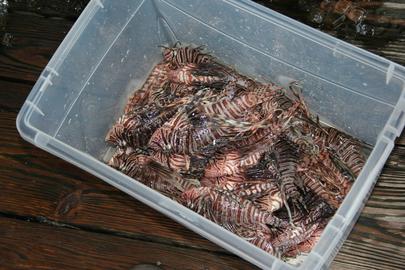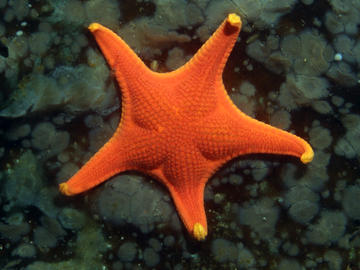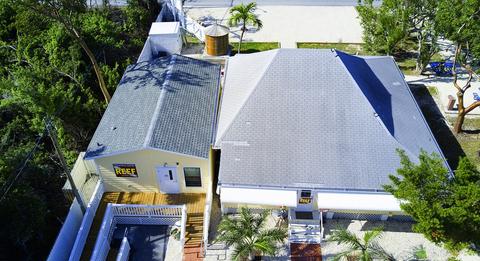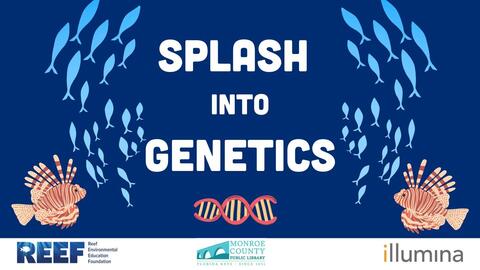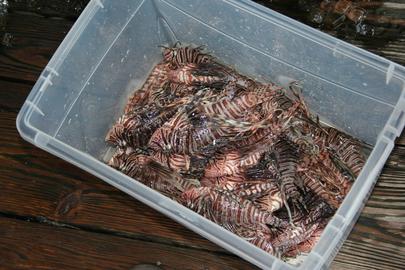As part of the 2025 Florida Keys Lionfish Derby & Arts Festival REEF will host the Derby Captains Meeting at Florida Keys Brewing Company on Thursday, April 24, 2025.
Current search
Search found 418 items
- INVASIVE
Approximately 100 divers collected 534 Indo-Pacific red lionfish during the first tournament dedicated to reducing the population of the invasive species in the Florida Keys waters. The September 11 tournament in Key Largo, organized by REEF and the Florida Keys National Marine Sanctuary, is the first of three Keys-based lionfish roundups. The event attracted 27 teams that competed for cash and prizes to collect the most, largest and smallest lionfish. The winning team captured 111 lionfish during the single day event.
Divers will return to Florida Keys waters next month on a mission: net thousands of dollars in cash and prizes while protecting the environment from invasive lionfish.
Join Janna Nichols and Ellie Place on the final of a four part series on how to find and identify the invertebrates you can see on your dives in the Pacific Northwest. This is a great introductory course, as well as a review for more experienced surveyors. All are welcome!
Echinodermata:
Earth Day is just a few days away. You can celebrate our environment by helping us reduce our carbon footprint at REEF Headquarters through a one-time, tax-deductible donation to support renewable energy.
Your generous contribution of $500 or $1,000 will go directly toward the installation of solar panels on the roof of REEF's Interpretive Center, reducing our monthly energy costs by an average of 55%!* Donors will be honored on a commemorative plaque at REEF Headquarters.
The Conservation Challenge is a fun way to get involved in marine conservation and citizen science. You can earn collectible stickers by participating in various REEF programs and events! There are some great opportunities coming up this fall to earn different Conservation Challenge stickers, including:
Join REEF at the Public Library as we dive into what conservation genetics is and how it can help us combat difficult ecological problems like invasive species! After a brief presentation, participants are welcome to take part in extracting DNA from a strawberry and see how we can use DNA to find out what invasive lionfish are eating.
Presented by Annika Olson, REEF Marine Conservation Intern
Divers will return to Florida Keys waters next month on a mission: net thousands of dollars in cash and prizes while protecting the environment from invasive lionfish. REEF and the Florida Keys National Marine Sanctuary are hosting the second annual lionfish derby series starting May 14, in Long Key, Fla. In 2010, the inaugural series of lionfish derbies removed 664 of the Pacific invaders from sanctuary waters. “Anyone who appreciates the diversity of the Keys coral reef should be concerned about these invasive fish,” said Sean Morton, Sanctuary Superintendent.


